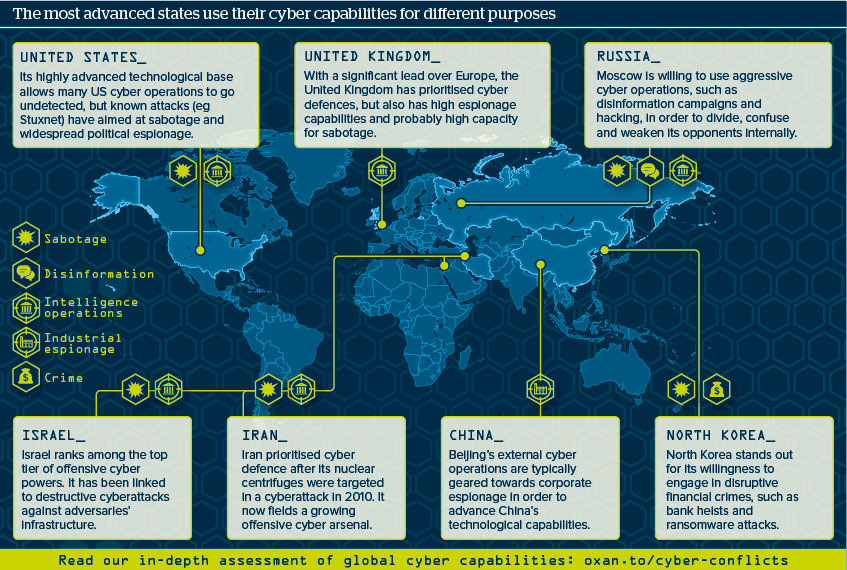Ambiguous norms encourage more daring cyberattacks
The harmful effects of cyberattacks may increase as states test the boundaries of accepted norms in cyberspace
Source: Oxford Analytica
Outlook
More countries are using cyber operations to advance their strategic goals: from widespread espionage operations in the West, to disinformation campaigns emanating from Russia, corporate espionage from China and financial crime from North Korea.
There have also been physically destructive attacks: Russia targeted the electricity grid in Ukraine; the United States and Israel probably targeted nuclear centrifuges in Iran; and Iran is believed to be behind debilitating attacks against oil companies in Saudi Arabia. Yet the Russian meddling in the 2016 US elections may have been the most impactful of all.
These types of attacks are disruptive and invite retaliation. Yet where the line of retaliation lies is subject to interpretation and fosters enough ambiguity, to encourage more and more daring cyber attacks.
Impacts
- Misinformation and hackings are on the rise between Qatar and its Gulf enemies, the United Arab Emirates and Saudi Arabia.
- Misinformation campaigns are likely to increase worldwide.
- This will probably spur regulations to curb ‘fake news’.
- Meanwhile, authoritarian countries such as Russia and China will continue to crack down on domestic dissidents.
See also
- Russia wants cyber space ruled as sovereign zones - Aug 22, 2018
- Cyber conflict will probably become more destructive - Apr 25, 2018
- More graphic analysis
